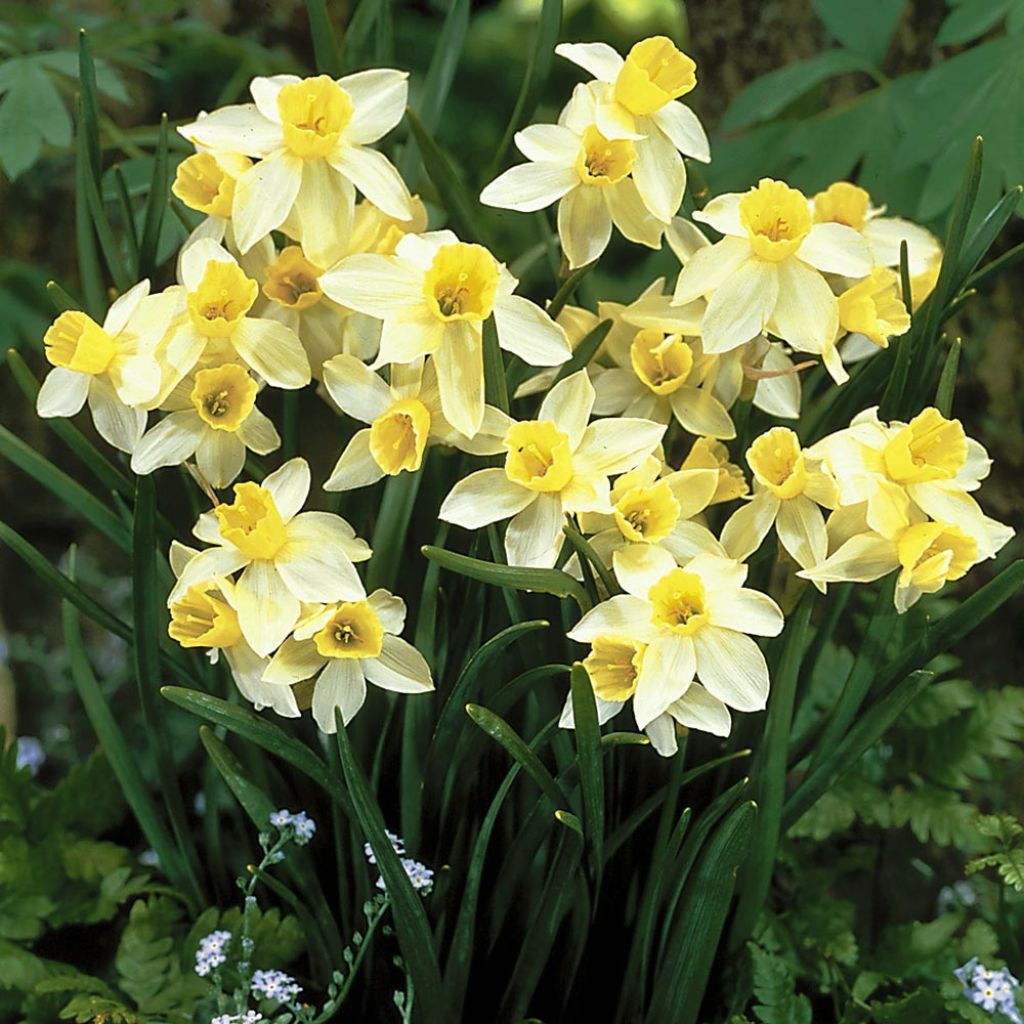

Narcisse miniature Sailboat
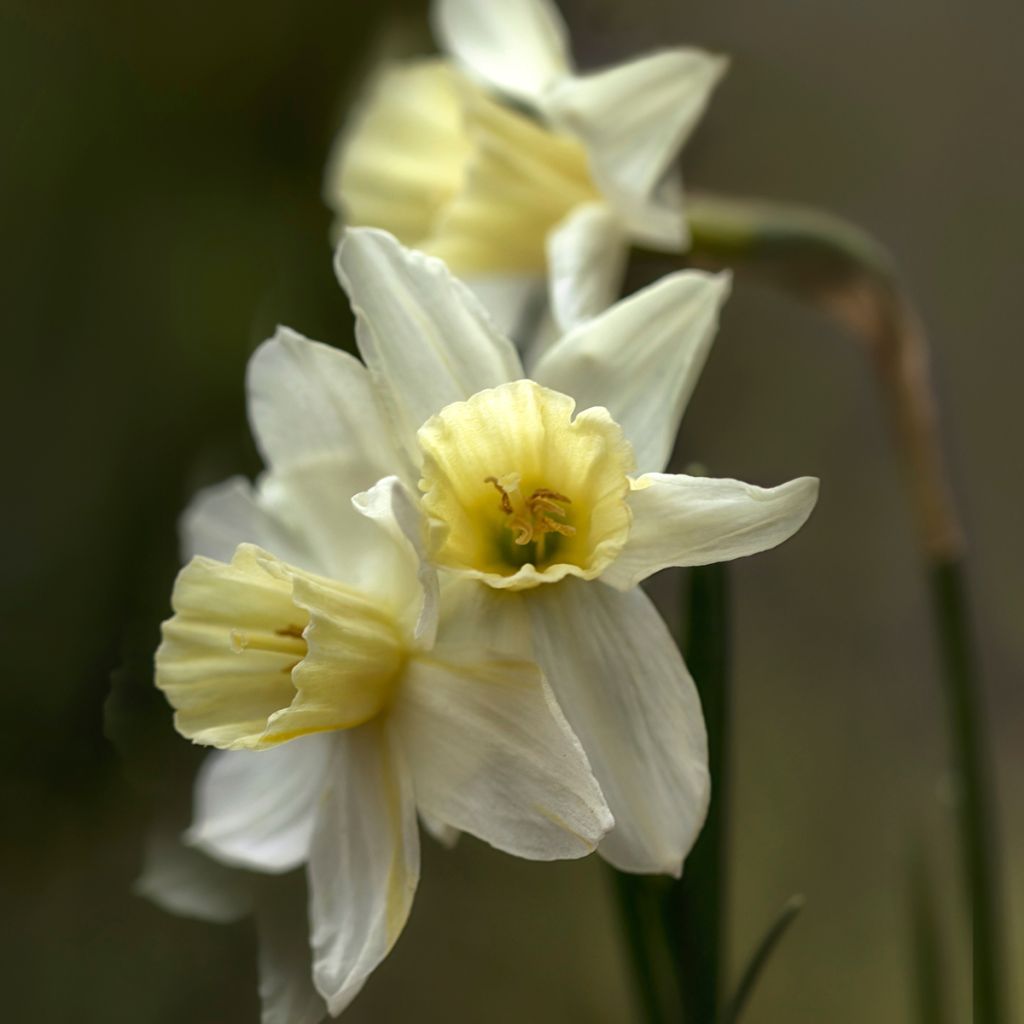

Narcisse miniature Sailboat
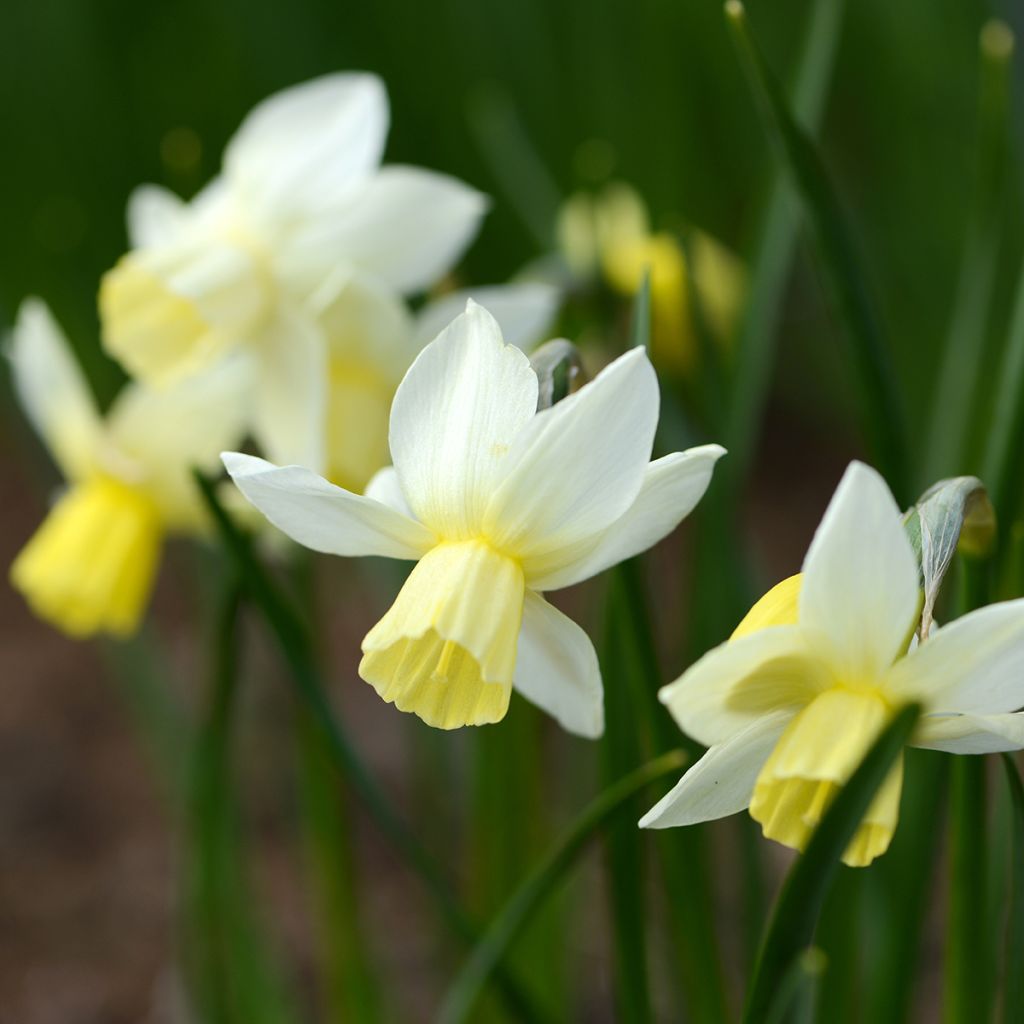

Narcisse miniature Sailboat
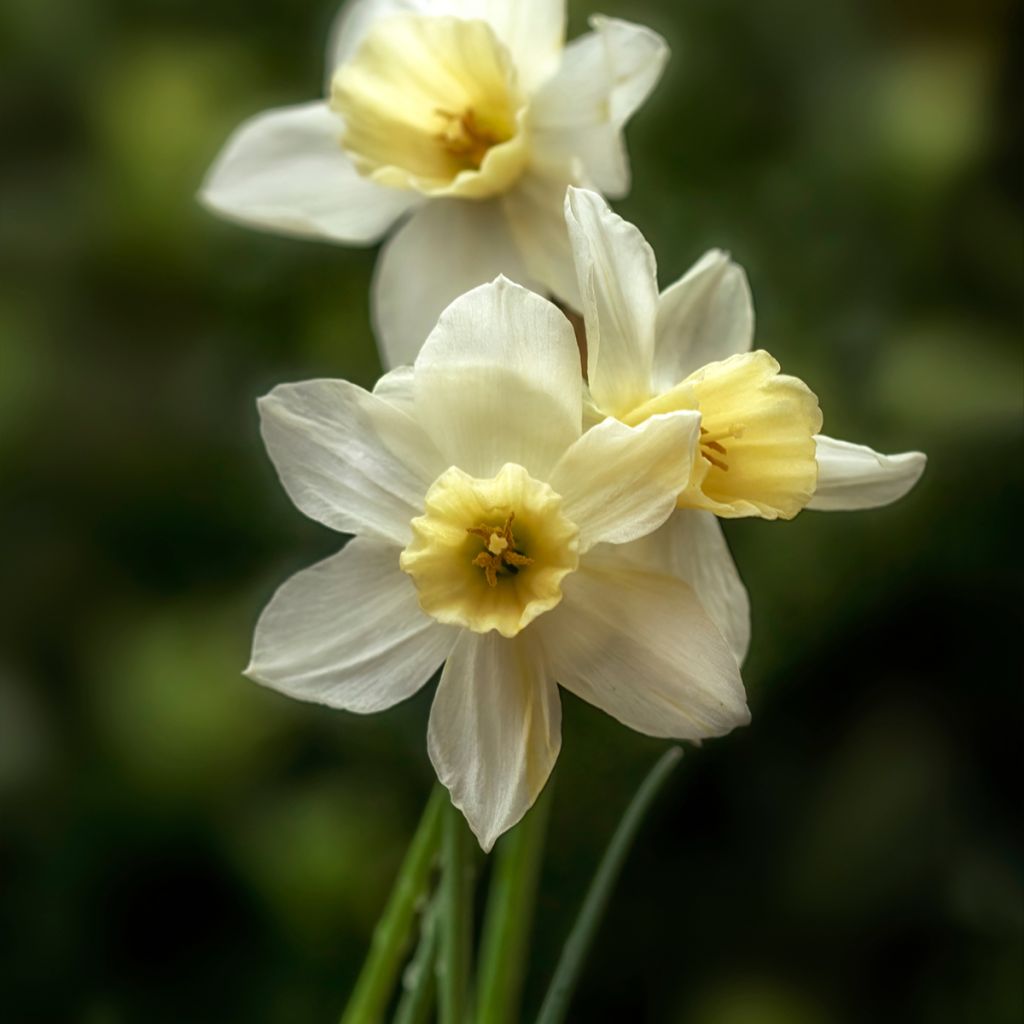

Narcisse miniature Sailboat
Narcissus Sailboat
Narcissus Sailboat
Daffodil 'Sailboat'
Very beautiful bulbs, well packed. We will see in the spring!
Mariefrance, 05/12/2024
This plant carries a 6 months recovery warranty
More information
We guarantee the quality of our plants for a full growing cycle, and will replace at our expense any plant that fails to recover under normal climatic and planting conditions.
From €5.90 for pickup delivery and €6.90 for home delivery
Express home delivery from €8.90.

Does this plant fit my garden?
Set up your Plantfit profile →
Description
Narcissus 'Sailboat' is a small variety of daffodil that produces 2 to 3 fragrant white flowers with a sulphur yellow centre, gradually turning to creamy white. Standing at just 25cm (10in) tall, it is ideal in a lawn or at the edge of a sunny flower bed, where it will multiply to form colourful patches that faithfully return every year.
Narcissus 'Sailboat' belongs to the Amaryllidaceae family, just like ornamental garlic or snowdrops. Horticultural hybrid narcissus are divided into divisions based on the botanical species they originate from. There are 13 divisions. 'Sailboat' belongs to division 7, which is associated with N. jonquilla, a small Iberian species adapted to rather warm climates. All related varieties are characterised by narrow and almost cylindrical leaves, and an umbel of 2 to 5 flowers per stem. Each flower is also equipped with a small shallow cup-shaped crown and emits a pleasant lemon scent. The perianth (composed of identical petals and sepals) is spread out.
Narcissus 'Sailboat' flowers are usually grouped in threes. They bloom in April and early May. Their perianth is ivory white, and the crown is sulphur yellow. Over time, the whole gradually turns to creamy-white.
Given the influence of Narcissus jonquilla in its genes, 'Sailboat' prefers fairly warm soils. It will not thrive well in very cold regions, especially if planted in the shade. Choose a sunny location that warms up quickly, and avoid heavy, moist soils. Once the appropriate location is found, it is a vigorous and trouble-free plant that will multiply abundantly over the years. You will eventually obtain beautiful, highly flowered clumps that will perfume your flower beds. It is also a very good plant for naturalising in a lawn.
Please note that the sap is irritating and toxic, as with all narcissus plants.
Pair 'Sailboat' with other similar narcissus varieties, such as 'Pipit', which is slightly taller. It will also work wonders alongside Geranium 'Cluden Sapphire', as it accompanies the start of its flowering, or in a rockery with Alyssum 'Goldkugel' and Iris 'Making Eyes'.
Report an error about the product description
Narcissus Sailboat in pictures
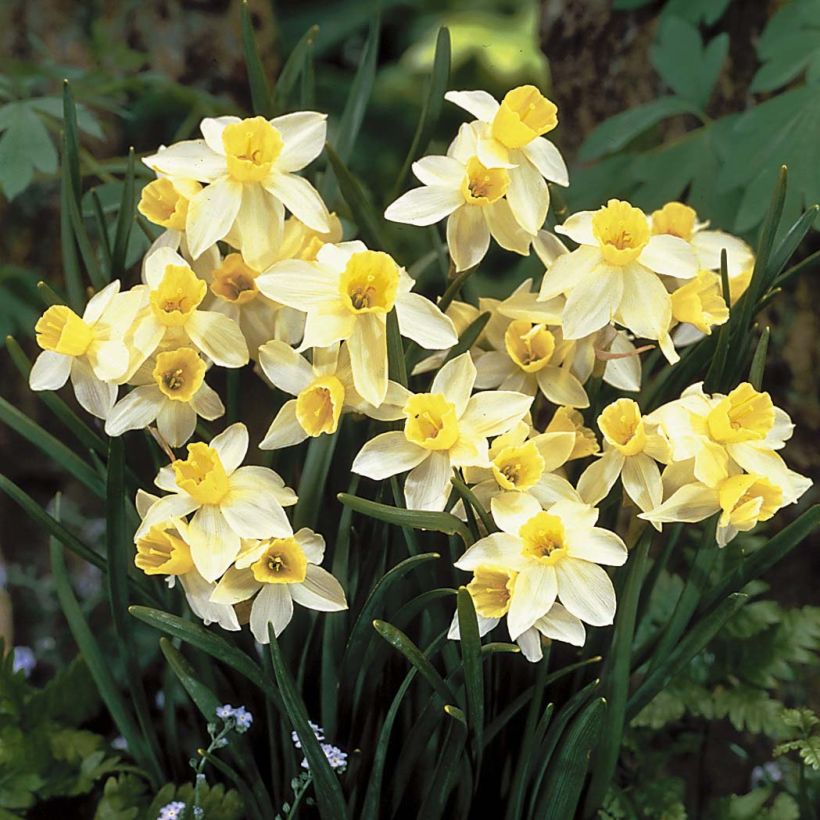

Plant habit
Flowering
Foliage
Botanical data
Narcissus
Sailboat
Amaryllidaceae
Daffodil 'Sailboat'
Cultivar or hybrid
Planting and care
Daffodils are not demanding when it comes to soil type. They thrive in ordinary soils that are preferably moist and rich. Plant 'Sailboat' bulbs in a sunny or partially shaded location that is not too cold. To stagger the flowering, place them in several locations, varying in sunlight, as daffodils flower depending on the amount of sunlight they receive.
Plant from September to November for spring flowering. Plant the bulbs at a depth of 15cm (6in), with the pointed end facing upwards, and keep a spacing of 8cm (3in). You can plant them in groups of 5 to 10 bulbs to achieve a beautiful display of colour in spring.
Daffodils require little maintenance. Remove the faded flowers to prevent the bulb weakening from seed production. After flowering, let the foliage die naturally and only cut it when it turns yellow. The bulb uses the foliage to replenish itself and prepare for the following year's flowers.
Daffodil bulbs can remain in place from year to year. If the clumps become dense and less floriferous, they can be divided from July to September when the leaves are dry. Replant the bulbs immediately, discarding any damaged ones.
Planting period
Intended location
Care
-
, onOrder confirmed
Reply from on Promesse de fleurs
Haven't found what you were looking for?
Hardiness is the lowest winter temperature a plant can endure without suffering serious damage or even dying. However, hardiness is affected by location (a sheltered area, such as a patio), protection (winter cover) and soil type (hardiness is improved by well-drained soil).

Photo Sharing Terms & Conditions
In order to encourage gardeners to interact and share their experiences, Promesse de fleurs offers various media enabling content to be uploaded onto its Site - in particular via the ‘Photo sharing’ module.
The User agrees to refrain from:
- Posting any content that is illegal, prejudicial, insulting, racist, inciteful to hatred, revisionist, contrary to public decency, that infringes on privacy or on the privacy rights of third parties, in particular the publicity rights of persons and goods, intellectual property rights, or the right to privacy.
- Submitting content on behalf of a third party;
- Impersonate the identity of a third party and/or publish any personal information about a third party;
In general, the User undertakes to refrain from any unethical behaviour.
All Content (in particular text, comments, files, images, photos, videos, creative works, etc.), which may be subject to property or intellectual property rights, image or other private rights, shall remain the property of the User, subject to the limited rights granted by the terms of the licence granted by Promesse de fleurs as stated below. Users are at liberty to publish or not to publish such Content on the Site, notably via the ‘Photo Sharing’ facility, and accept that this Content shall be made public and freely accessible, notably on the Internet.
Users further acknowledge, undertake to have ,and guarantee that they hold all necessary rights and permissions to publish such material on the Site, in particular with regard to the legislation in force pertaining to any privacy, property, intellectual property, image, or contractual rights, or rights of any other nature. By publishing such Content on the Site, Users acknowledge accepting full liability as publishers of the Content within the meaning of the law, and grant Promesse de fleurs, free of charge, an inclusive, worldwide licence for the said Content for the entire duration of its publication, including all reproduction, representation, up/downloading, displaying, performing, transmission, and storage rights.
Users also grant permission for their name to be linked to the Content and accept that this link may not always be made available.
By engaging in posting material, Users consent to their Content becoming automatically accessible on the Internet, in particular on other sites and/or blogs and/or web pages of the Promesse de fleurs site, including in particular social pages and the Promesse de fleurs catalogue.
Users may secure the removal of entrusted content free of charge by issuing a simple request via our contact form.
The flowering period indicated on our website applies to countries and regions located in USDA zone 8 (France, the United Kingdom, Ireland, the Netherlands, etc.)
It will vary according to where you live:
- In zones 9 to 10 (Italy, Spain, Greece, etc.), flowering will occur about 2 to 4 weeks earlier.
- In zones 6 to 7 (Germany, Poland, Slovenia, and lower mountainous regions), flowering will be delayed by 2 to 3 weeks.
- In zone 5 (Central Europe, Scandinavia), blooming will be delayed by 3 to 5 weeks.
In temperate climates, pruning of spring-flowering shrubs (forsythia, spireas, etc.) should be done just after flowering.
Pruning of summer-flowering shrubs (Indian Lilac, Perovskia, etc.) can be done in winter or spring.
In cold regions as well as with frost-sensitive plants, avoid pruning too early when severe frosts may still occur.
The planting period indicated on our website applies to countries and regions located in USDA zone 8 (France, United Kingdom, Ireland, Netherlands).
It will vary according to where you live:
- In Mediterranean zones (Marseille, Madrid, Milan, etc.), autumn and winter are the best planting periods.
- In continental zones (Strasbourg, Munich, Vienna, etc.), delay planting by 2 to 3 weeks in spring and bring it forward by 2 to 4 weeks in autumn.
- In mountainous regions (the Alps, Pyrenees, Carpathians, etc.), it is best to plant in late spring (May-June) or late summer (August-September).
The harvesting period indicated on our website applies to countries and regions in USDA zone 8 (France, England, Ireland, the Netherlands).
In colder areas (Scandinavia, Poland, Austria...) fruit and vegetable harvests are likely to be delayed by 3-4 weeks.
In warmer areas (Italy, Spain, Greece, etc.), harvesting will probably take place earlier, depending on weather conditions.
The sowing periods indicated on our website apply to countries and regions within USDA Zone 8 (France, UK, Ireland, Netherlands).
In colder areas (Scandinavia, Poland, Austria...), delay any outdoor sowing by 3-4 weeks, or sow under glass.
In warmer climes (Italy, Spain, Greece, etc.), bring outdoor sowing forward by a few weeks.


































